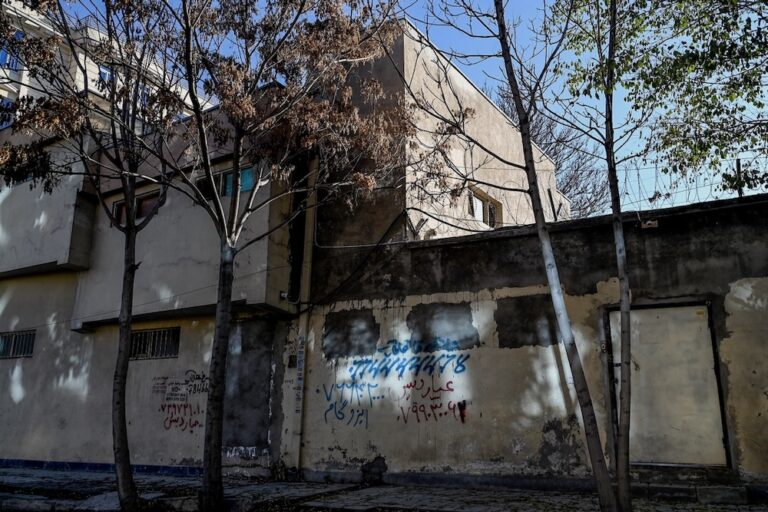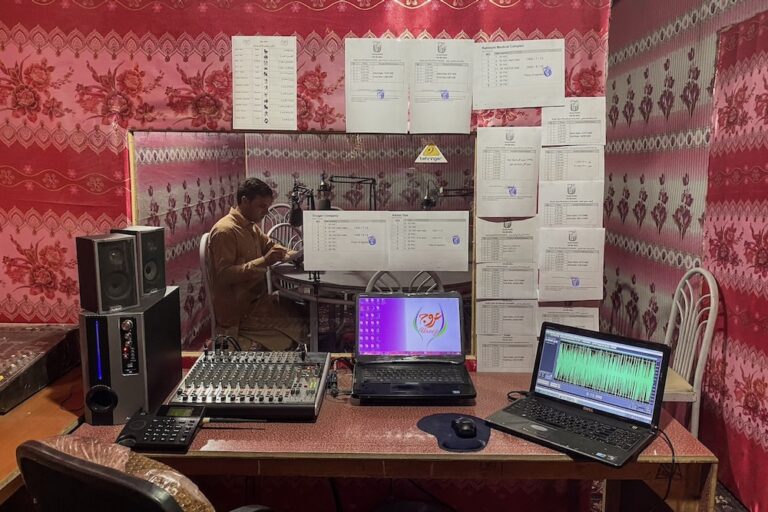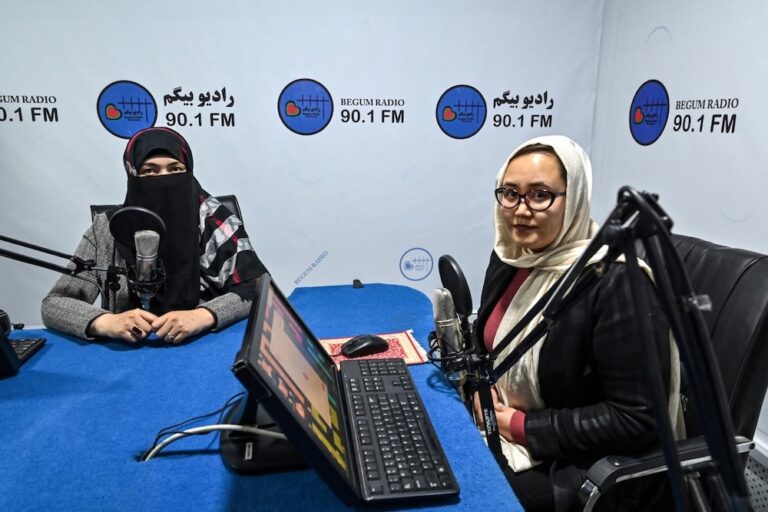(CPJ/IFEX) – The following is a 14 March 2001 CPJ press release: CPJ Condemns Taliban’s Expulsion of BBC Reporter from Afghanistan New York, March 14, 2001 — The Committee to Protect Journalists (CPJ) is dismayed by the ruling Taliban militia’s decision to expel BBC correspondent Kate Clark from Afghanistan. Authorities ordered Clark to leave the […]
(CPJ/IFEX) – The following is a 14 March 2001 CPJ press release:
CPJ Condemns Taliban’s Expulsion of BBC Reporter from Afghanistan
New York, March 14, 2001 — The Committee to Protect Journalists (CPJ) is dismayed by the ruling Taliban militia’s decision to expel BBC correspondent Kate Clark from Afghanistan. Authorities ordered Clark to leave the country within 36 hours in response to BBC reports about the militia’s destruction of ancient Buddhist statues in Bamiyan, some 100 miles northwest of the capital, Kabul.
“The Taliban leaders do themselves and the people of Afghanistan a great disservice by blinding the world to what is happening within the country,” said CPJ’s executive director Ann Cooper. “By expelling the only foreign correspondent based in Kabul, the regime is cutting off a critical channel of communication with the international community.”
Over the past year, there has been some disagreement among the Taliban leadership on how to treat the foreign media. A powerful conservative core now seems to be prevailing over comparatively moderate officials who had argued that international press attention could help secure desperately needed aid and even diplomatic recognition.
Recently, the Taliban blocked journalists from witnessing its destruction of two ancient statues of the Buddha that had towered over Bamiyan since at least the 6th century A.D. In January, authorities forbade journalists from traveling to Bamiyan Province to investigate an alleged massacre in Yakaolang, where at least 100 civilians were reported to have been killed by Taliban forces.
The Pakistan-based Afghan Islamic Press news agency published the Taliban’s statement defending Clark’s expulsion, in which the BBC is accused of “broadcasting false news about Afghanistan and vicious propaganda against the Islamic Emirate of Afghanistan (IEA) by its enemies.” The statement took issue with a BBC report in which an American professor criticized the Taliban’s order to destroy the Buddhas of Bamiyan.
Because there is no local independent media, Afghans get much of their news from foreign short-wave radio broadcasts. The BBC produces programming in Pashto and Dari, the two national languages.
“We hope the Taliban will reconsider its decision to expel Kate Clark,” said Cooper. “Shutting people out will not shut off criticism.”
For more information on press conditions in Afghanistan, visit the CPJ Web site at .
CPJ is a New York-based, nonpartisan, nonprofit organization of journalists that works to defend press freedom around the world.


